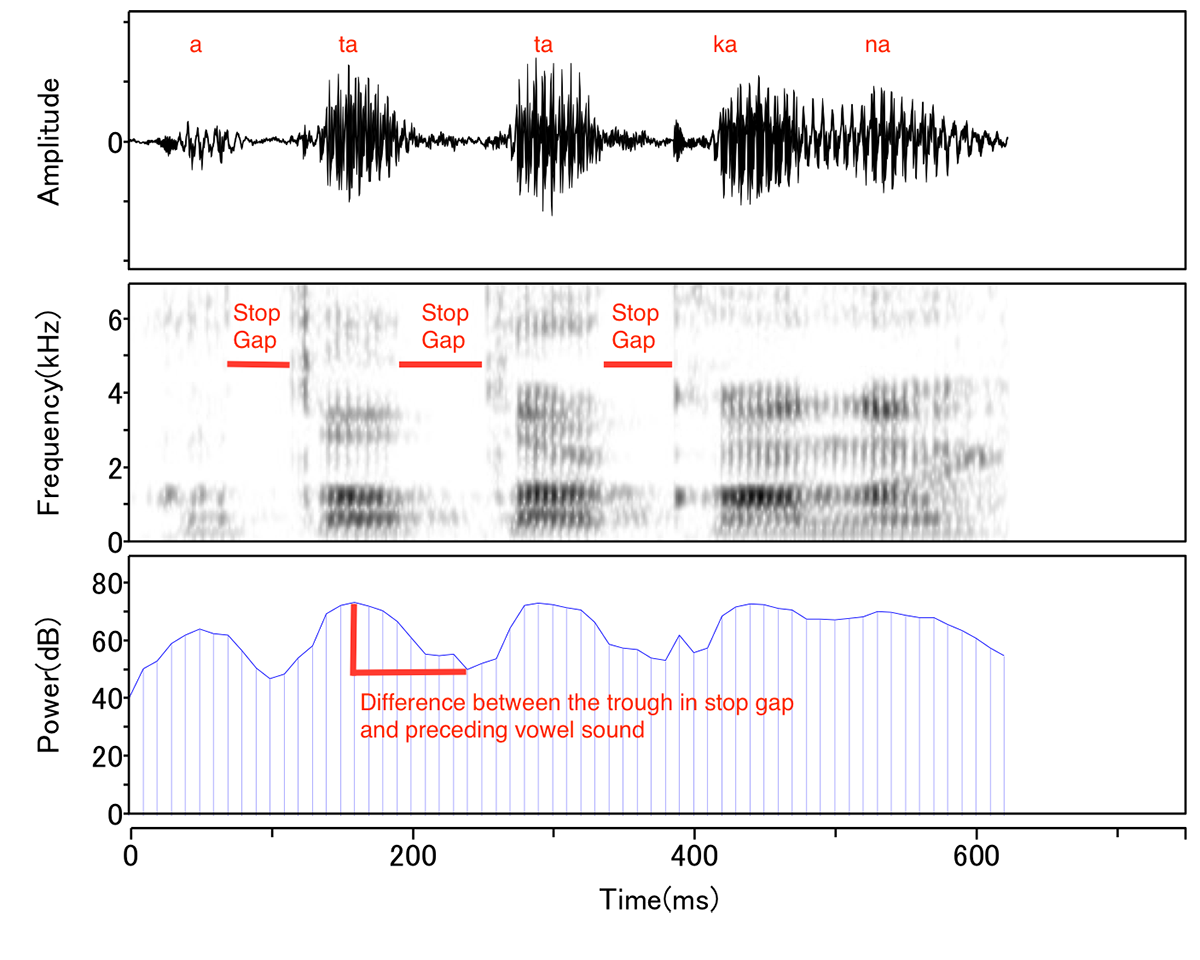Session Information
Date: Wednesday, September 25, 2019
Session Title: Surgical Therapy
Session Time: 1:15pm-2:45pm
Location: Les Muses Terrace, Level 3
Objective: To clarify the characteristics of changes in stop consonant articulation in PD subjects before and after DBS and compared with control group by using speech analysis software.
Background: Patients with Parkinson’s disease (PD) following deep brain stimulation (DBS) occasionally develops impaired articulation in spite of improvement in the motor symptoms. However, the cause of speech impairment attributable to DBS is unclear.
Method: Ten PD patients who had undergone DBS (PD-DBS group) and twelve healthy controls (HC group) participated in this study. The mean age of the patients was 65.8 years (range 52-71)and the mean disease durationwas 11.3 years (range 6.9-16.4). We evaluated reading task of a standard passage (The North Wind and the Sun) in Japanese, using speech analysis software(AcousticCore8)[SH1] . A word in part of a sentence, “a-ta-ta-ka-na (‘warm’),” was assessed when the patients were on-state under their usual optimized medication before and after DBS. Waveforms, acoustic pressure level, and results of spectral analysis were compared between before and after DBS, and between PD-DBS group and HC group.
Results: In waveform analysis, the mean duration of utterance of the word was shorter in HC group (0.53 s) than in PD-DBS group both before DBS (0.70 s), (vs HC group, p=.017) and after DBS (0.65 s), (vs HC group, p=.019), although there was no significant difference between the surgical procedure. Pronunciation of stop consonant was normally produced with vocal tract occlusion by the tongue tip and gums ([t], alveolar consonant) or tongue body and soft palate ([k], velar consonant). The airflow blocking could be detected in spectrogram as a preceding silent interval on stop consonant which is called stop gap. These blanks were generally evident by visual assessment. On the other hand, in some PD patients, incomplete occlusion made the stop consonant frictional, and stop gap was not recorded. Furthermore, the frequency of undesired frictional change was increased after DBS (p=.011). In acoustic pressure level study, we measured a difference between the trough of pressure level during stop gap and the level of preceding vowel sound. The difference on second “t” consonant decreased from 17.5 dB to 10.3 dB after DBS (p=.040).
Conclusion: DBS made pronunciation of stop consonant unclear with partial occlusion due to dysfunction in tongue movement.
To cite this abstract in AMA style:
T. Sakurai, T. Yamamoto, Y. Yamanaka, S. Hirano, M. Abe, Y. Uji, A. Murata, Y. Higuchi, S. Kuwabara. Unclear Pronunciation of Stop Consonant Sounds in Patients with Parkinson’s Disease Following Deep Brain Stimulation [abstract]. Mov Disord. 2019; 34 (suppl 2). https://www.mdsabstracts.org/abstract/unclear-pronunciation-of-stop-consonant-sounds-in-patients-with-parkinsons-disease-following-deep-brain-stimulation/. Accessed July 1, 2025.« Back to 2019 International Congress
MDS Abstracts - https://www.mdsabstracts.org/abstract/unclear-pronunciation-of-stop-consonant-sounds-in-patients-with-parkinsons-disease-following-deep-brain-stimulation/

